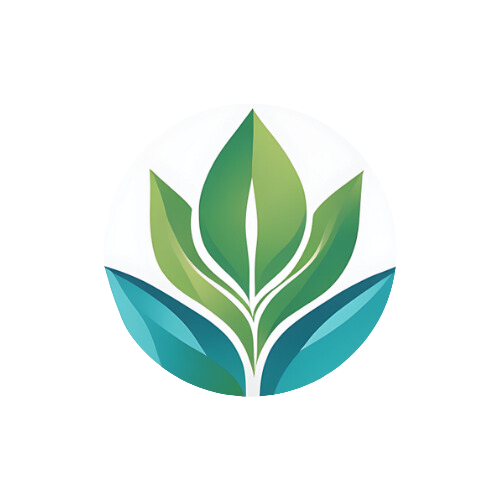Water is life. It’s a phrase we’ve all heard, and for a good reason. Staying hydrated is one of the simplest yet most crucial aspects of maintaining good health. Despite its importance, many people underestimate the role hydration plays in overall well-being. In this article, we’ll explore the importance of staying hydrated, how much water you really need, and tips for incorporating hydration into your daily routine.
Why Is Hydration So Important?
Water is essential for nearly every function in your body. It makes up approximately 60% of your body weight and is involved in countless processes that keep you alive and healthy.
1. Regulates Body Temperature
Sweating helps cool your body during physical activity or in hot environments. Proper hydration ensures your body can regulate its temperature effectively.
2. Aids Digestion
Water is critical for breaking down food and absorbing nutrients. It helps move food through your digestive system, preventing issues like constipation.
3. Supports Joint and Muscle Health
Water acts as a lubricant for your joints, reducing friction and allowing for smooth movement. It also helps prevent muscle cramps and fatigue.
4. Boosts Energy Levels
Dehydration can lead to fatigue and reduced focus. Staying hydrated keeps your energy levels stable throughout the day.
5. Flushes Out Toxins
Your kidneys rely on water to filter waste and toxins from your blood, which are then excreted through urine.
6. Improves Skin Health
Adequate hydration helps maintain skin elasticity, reduces dryness, and can give your skin a healthy glow.

Signs of Dehydration
Dehydration occurs when your body loses more water than it takes in. Even mild dehydration can affect your physical and mental performance.
Here are some common signs of dehydration:
- Dry mouth and throat.
- Fatigue or low energy.
- Dark yellow urine or infrequent urination.
- Dizziness or lightheadedness.
- Dry skin or reduced skin elasticity.
- Headaches or difficulty concentrating.
In severe cases, dehydration can lead to heatstroke, kidney problems, or even life-threatening conditions.

How Much Water Do You Need?
The “8 glasses of water a day” rule is often quoted but isn’t universally accurate. Your water needs depend on various factors, including your age, activity level, climate, and overall health.
1. General Recommendations
The National Academies of Sciences suggests the following daily intake:
- Men: About 3.7 liters (125 ounces) of total water, including fluids and food.
- Women: About 2.7 liters (91 ounces) of total water.
2. Adjustments Based on Lifestyle
- Physical Activity: If you exercise regularly, you’ll need more water to replenish fluids lost through sweat. A general guideline is to drink an additional 12–16 ounces for every 30 minutes of exercise.
- Climate: In hot or humid weather, your body loses more water through sweat. Increase your intake accordingly.
- Health Conditions: Illnesses like fever, diarrhea, or vomiting increase your fluid requirements.
3. Water from Food
About 20–30% of your daily water intake comes from food. Water-rich foods like fruits, vegetables, and soups can contribute significantly to your hydration.

Special Considerations
1. Pregnant and Breastfeeding Women
Pregnant women should aim for about 3 liters (101 ounces) of water per day, while breastfeeding women need even more, about 3.8 liters (128 ounces), to support milk production.
2. Older Adults
As we age, the sensation of thirst diminishes, making older adults more susceptible to dehydration. Staying proactive about hydration is vital.
3. Children
Children’s hydration needs vary by age, but encouraging them to drink water regularly is important, especially if they’re active.
Tips for Staying Hydrated
Staying hydrated doesn’t have to be a chore. Here are practical tips to ensure you’re drinking enough water throughout the day:
1. Carry a Water Bottle
Keeping a reusable water bottle with you makes it easy to sip water wherever you go.
2. Set Reminders
Use phone alarms or apps to remind you to drink water regularly, especially if you’re prone to forgetting.
3. Flavor Your Water
If plain water feels boring, add natural flavors like lemon, cucumber, mint, or berries.
4. Drink Before You’re Thirsty
Thirst is a late indicator of dehydration. Make it a habit to drink water consistently throughout the day.
5. Hydrate with Meals
Drink a glass of water before, during, and after meals to support digestion.
6. Use Visual Cues
Mark your water bottle with time goals (e.g., “Drink by 10 AM”) to track your progress.

Hydration Myths Debunked
1. Myth: You Can Only Drink Water to Stay Hydrated
While water is the best choice, other beverages like herbal teas, milk, and even coffee (in moderation) can contribute to your daily fluid intake.
2. Myth: Clear Urine Means You’re Overhydrated
Clear urine is a sign of good hydration, but consistently drinking excessive amounts of water can lead to hyponatremia, a rare condition where sodium levels in your blood drop dangerously low.
3. Myth: You Can’t Overhydrate
While rare, overhydration (water intoxication) can occur, especially if you drink excessive water in a short period without replacing electrolytes.
Hydration and Mental Health
Hydration isn’t just about physical health—it also plays a role in mental well-being. Even mild dehydration can affect mood, concentration, and cognitive performance. Studies have shown that staying adequately hydrated improves alertness, reduces feelings of fatigue, and supports overall mental clarity.
When to See a Doctor
If you experience severe symptoms of dehydration or notice persistent signs despite drinking enough water, it’s essential to seek medical attention. Warning signs include:
- Extreme thirst.
- Very dark urine or no urination.
- Rapid heartbeat or breathing.
- Confusion or lethargy.
Conclusion
Staying hydrated is a cornerstone of good health. By understanding your body’s unique water needs and adopting simple daily habits, you can improve your energy levels, mental clarity, and overall well-being. Start by making hydration a priority today—it’s a small change that yields significant benefits.
I



